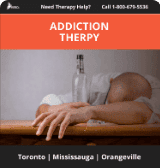Addiction Counselling
AERCS’ addiction counselling helps you categorize addiction, break dependency, manage substance abuse, and offers professional support for a healthier life.
Personalized Recovery Path
Enhanced Emotional Well-being
Break Dependency Cycle
Rebuild Healthy Life
Unlock Hope and Healing with a Complimentary 20-Minute Phone Call Consultation
Are you ready to take the first step towards a brighter future? At AERCS, we're here to support you on your path to well-being. Our complimentary intake call is your opportunity to connect with us, confidentially share your journey, and discover the transformative support we offer. By taking this call, you're not just talking; you're taking control of your well-being, paving the way for tailored therapy that can change your life. Don't wait—book your call today and embrace the healing journey that awaits you.

AERCS’ certified counsellors help you address addiction counselling challenges.
AERCS’ staff includes registered counsellors, psychotherapists, and certified social workers, helping with:
- Categorizing Addiction
- Understanding Physical Addiction
- Distinguishing Regular Use from Abuse
- Managing Substance Abuse
- Recognizing Dependency
- Addressing Withdrawal Symptoms
- Understanding Substance Use Disorder
- Impact Assessment
- Professional Recovery Support
- Guidance on Detoxification and Rehabilitation
AERCS Addiction Counselling Therapy deals with addiction as a disease, and not just a symptom of another underlying issue.
Anyone suffering from addiction knows how it damages careers, destroys relationships and impacts friends’ and families’ lives. AERCS’ certified addiction counsellors have the training, skill, and compassion necessary to guide everyone afflicted. Family members can also be assisted too on how to release any negative emotions they experience in their relationship with the sufferer.
Contributing factors are of course identified, and dealt with in regards to the subject’s behaviour toward alcohol or illicit drugs.
AERCS’ addiction counselling sessions explore the reasons why addiction happens and the subject’s true motivations which helps individuals become more aware of their actions and gain a better understanding of themselves which is an important part of the recovery process.
During addiction counselling sessions, the problems and challenges that led the subject’s use drugs or alcohol are assessed. After a thorough evaluation of the participant’s situation, AERCS’ therapists will arrange specialized treatment to help the person in recovery face their challenges with new behaviours to help them attain the goals.
Addiction counselling sessions are designed to help sufferers overcome their fears and face the unpleasant elements that cause stress and anxiety. Our addiction counselling therapy can help the subject in stressful times, and it helps them recognize and address their situation so they can take the necessary actions before they feel overwhelmed or committed.
Can you categorize your addiction?
Addiction is mental illness that diminishes the lives of everyone afflicted. It’s a slow motion car crash as individuals become more dependent after each experience. Therapists recognize four levels of addiction: physical, emotional, mental, and spiritual.
Experimenting with addictive substances.
 Not everyone who experiments with drugs becomes addicted. Some people are better equipped to engage in risky behaviour and can walk away without any lasting problems. Others however develop a physical dependence when they discover the addictive substance brings happiness beyond the sensations they normally feel. It causes them to feel euphoric and perhaps forget the other problems and in this way it remedies unpleasant emotions. In these cases, the activity brings additional comforts beyond what emotionally well-adjusted people might experience.
Not everyone who experiments with drugs becomes addicted. Some people are better equipped to engage in risky behaviour and can walk away without any lasting problems. Others however develop a physical dependence when they discover the addictive substance brings happiness beyond the sensations they normally feel. It causes them to feel euphoric and perhaps forget the other problems and in this way it remedies unpleasant emotions. In these cases, the activity brings additional comforts beyond what emotionally well-adjusted people might experience.
Regular use is substance abuse.
People who develop a physical dependence on an addictive substance need to imbibe regularly to relax, cope with stress, or feel good. Frequent use quickly turns to abuse when they imbibe before work and important life events. Substance abuse is when you use a substance in ways that are harmful to your health or career and put yourself or others in danger. Abuse leads to addiction. However, not everyone who abuses a substance will become addicted.
Dependency is dealing with a high tolerance.
People who are addicted to a substance need a constant supply to function normally. By this point, they’ve built up a high tolerance to their favourite drug or alcohol and need increasingly larger amounts to enjoy the same effects. They may also experience withdrawal symptoms when they try to quit. Withdrawal can be uncomfortable and even dangerous, which makes it hard for people to break their addiction. Tolerance is when the user needs more of the drug to produce the desired effect, and dependence is when the user develops withdrawal symptoms upon cessation of use.
A substance use disorder.
People with a substance use disorder crave feeling a familiar, although not necessarily pleasurable sensation and cannot control their use. They continue to use it despite the negative consequences. Substance use disorders can lead to addiction. This may lead to job dropouts, financial instability, relationship problems, and health issues. People with a substance use disorder often need professional help to overcome their addiction. This can be difficult, but it is possible to recover from addiction. There are many resources available to help people overcome their addiction and live healthy lives.
AERCS offers a variety of addiction counselling services, and advice on detoxification, and rehabilitation. With the help of our professionals, you can overcome your addiction and live a healthy life.

Download your free copy of the AERCS Addiction Therapy Program.

Give Us a Call...
Get In touch.
Ask Any Question.
AERCs Orangeville Location
873209 5 Line E, Orangeville, ON L9W 6A4
AERCs Toronto Location
1849 Yonge St, Floor 1, Suite 914, Toronto, ON M4S 1Y2
AERCs Mississauga Location
89 Queensway W #226, Mississauga, ON L5B 2V2
AERCS Partners With...

